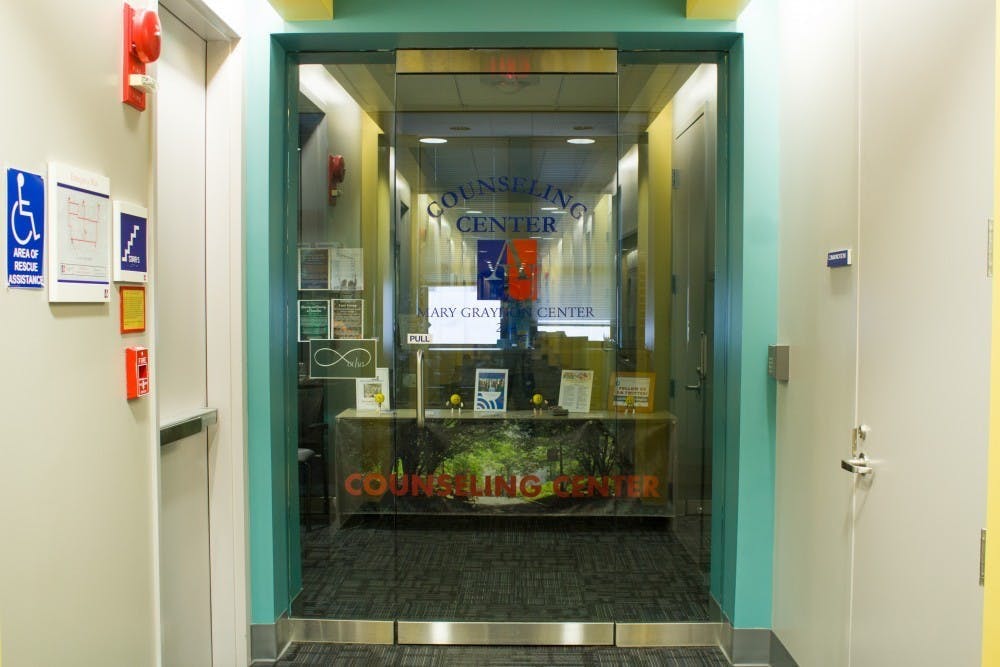The American University Counseling Center has rolled out expanded services to accommodate students’ needs amid the coronavirus pandemic.
In the past, students have expressed concerns about the Counseling Center’s lack of communication with patients, the cap on the number of appointments available and how services were unavailable to those residing outside of D.C. during the pandemic. Currently students are eligible for eight appointments with the Counseling Center every year.
“We predicted a higher clinical demand following COVID incidents and returning to class, and that prediction has proved to be true,” said Jeffrey Volkmann, the executive director of the Counseling Center and a licensed clinical psychologist. “Since August, we have seen a record number of students — the highest we’ve ever seen since the [online] semester.”
The Counseling Center is also offering both in-person and virtual counseling services, which allow students to choose a modality based on their specific needs. Before the coronavirus pandemic, only in-person appointments were available. However, due to licensure laws, students must be physically located in the District to take advantage of virtual counseling.
“I think there are going to be students that continue to like the virtual model. About 90 percent of students that are working with us right now have stated a preference for virtual services,” Volkmann said. “But we also know that some students have roommates and can’t find private spaces and feel more comfortable working with us in an in-person setting.”
In order to start in-person or virtual counseling, the student must first attend an initial consultation, where they will meet with a clinician and discuss their situation. Then, the student and clinician will develop a treatment plan, which could include individual counseling, support groups, psychiatric services or a referral for off-campus psychotherapy. The Counseling Center is equipped to provide six-eight sessions of weekly individual counseling per year, and can then make referrals for off-campus professionals.
By offering a larger variety of services, the Counseling Center is hoping to reduce barriers to care, one of which being the stigma around seeking help for mental illness, as well as address past student concerns about the availability of services.
“There are certain populations within the AU community, and also just generally in the United States, where there are still some pretty significant stigma barriers to reaching out,” said Traci Callandrillo, the assistant vice president of campus life. “Anything we can do to reinforce the ways that there are resources that have lower barriers … that’s one of the reasons we have so many avenues.”
One service now available is YOU at American, which Volkmann described as a “one-stop-shop for resources at AU.” The platform contains resources for students to use independently, such as self-assessments and other activities to promote wellness, as well as information about resources on campus.
To make mental health and emergency services more accessible to students, AU has partnered with Protocall, a 24/7 crisis line that is also used by other universities and is staffed with licensed clinicians.
The Counseling Center has also started utilizing the free MySSP app, which allows students to schedule appointments with clinicians and other support figures, receive referrals, take self-assessments, find text support and other resources. The goal of the app is to make mental health services more accessible to students, as it can be used outside of the Counseling Center’s hours of operation and is available to students living off campus, studying abroad or participating in online programs.
There is also an effort to get faculty, staff and students certified in QPR — Question, Persuade and Refer — which is a training that teaches how to help a person undergoing a mental health crisis, particularly in situations relating to suicide.
In addition to the aforementioned resources, the Counseling Center has increased the number of clinicians available to help students. There are three new full-time clinicians, as well as a position that was formerly managerial but has been repurposed to focus on more clinical work.
The Counseling Center also addressed the issue of attendance and how people not showing up to their sessions decreases the availability of appointments to other students also trying to schedule them, and they think that these expanded resources and modalities might help combat the problem.





